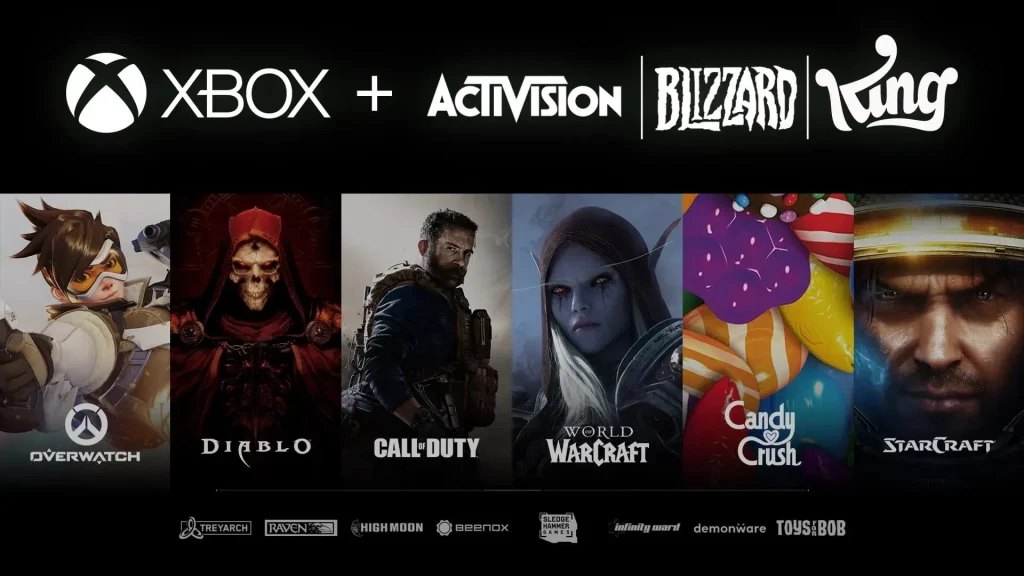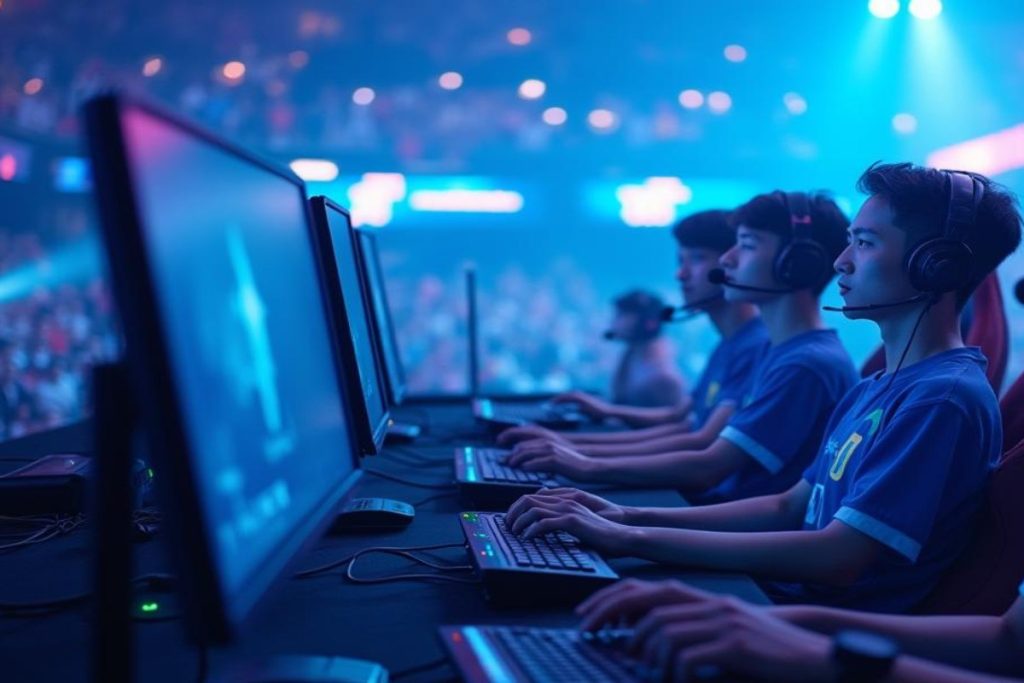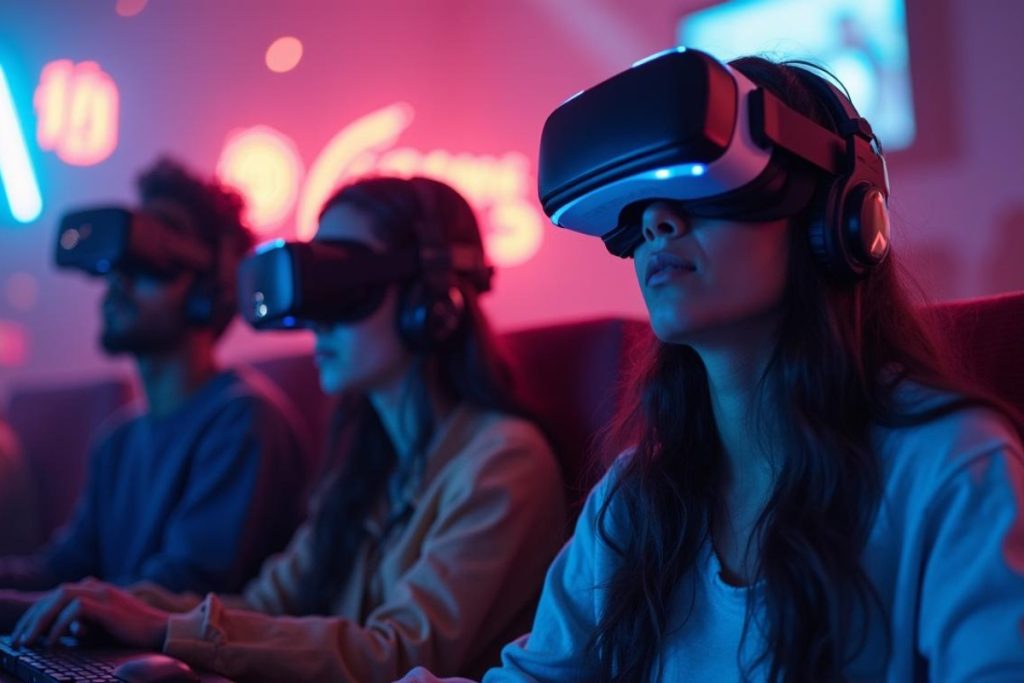The Microsoft Activision Blizzard acquisition marks a groundbreaking moment in the gaming industry, reflecting a significant shift in market dynamics. This $69 billion deal, finalized after extensive legal battles, has been at the center of an antitrust lawsuit led by the Federal Trade Commission (FTC), which argued that the acquisition could harm competition within various gaming markets. Despite these concerns, recent rulings from the 9th Circuit Court have upheld Microsoft’s right to proceed with the acquisition, dismissing the FTC’s appeal due to insufficient evidence. As Microsoft continues to leverage the acquisition, ramping up Xbox content and services revenue, the gaming market competition is poised to evolve dramatically. Stay informed with the latest Microsoft acquisition updates and Activision Blizzard news as this thrilling chapter unfolds in interactive entertainment.
The recent integration of Microsoft and Activision Blizzard signifies a pivotal evolution within the realm of interactive gaming, showcasing how strategic purchases can reshape industry landscapes. Following a protracted legal dispute over potential anticompetitive effects, Microsoft has successfully navigated challenges posed by regulatory agencies, signaling a shift in focus not only for the corporation but also for the broader gaming market. This acquisition serves as a key case study in antitrust discussions, particularly in light of the FTC’s ongoing legal maneuvers and appeals. As Microsoft’s strategy unfolds, stakeholders and gamers alike are eager for insights into how this merger will impact future gaming development and competition. With developments constantly emerging, it’s essential to keep track of the latest insights surrounding this monumental acquisition.
FTC’s Legal Battle Over Microsoft’s Activision Blizzard Acquisition
The saga of the FTC’s legal battle against Microsoft’s acquisition of Activision Blizzard continues to unfold as the agency’s recent appeal was rejected by the 9th Circuit Court. The FTC initially filed an antitrust lawsuit in December 2022 to challenge the $69 billion deal, claiming it would harm competition in the gaming market. Despite the FTC’s persistent efforts to halt the acquisition, the courts have consistently upheld Microsoft’s right to complete the transaction, emphasizing that the evidence provided did not sufficiently demonstrate anticompetitive effects.
With the courtroom drama now seemingly at an end, the FTC’s options appear limited. If it wishes to proceed, the agency must now persuade the US Supreme Court to consider its case, but the likelihood of this occurring amid a backdrop of shifting political landscapes remains uncertain. The new administration and the recent changes in FTC leadership could lead to a shift in priorities—one that may no longer focus extensively on this high-profile acquisition.
Impact on Gaming Market Competition Post-Acquisition
The successful completion of Microsoft’s acquisition of Activision Blizzard has significant implications for gaming market competition. Following the merger, there’s a notable tension in the industry regarding how market dynamics might shift. With Microsoft now controlling an extensive catalog of popular game titles, analysts are speculating about changes in game pricing, availability, and the competitive stance of other gaming companies like Sony and Nintendo. The acquisition could potentially reshape competitive strategies and marketplace interrelations, affecting how titles are developed and marketed.
Moreover, the increased revenue reported by Microsoft post-acquisition signals a strong consumer response to their expanded offerings. With a reported 61 percent year-on-year increase in Xbox content and services revenue, this acquisition not only enhances Microsoft’s portfolio but also raises questions about the future of game availability on competing platforms. As the gaming landscape evolves, observers will be keenly watching how other players adjust their strategies in response to this significant market shift.
Updates on Microsoft’s Acquisition Progress and Regulatory Responses through 2023 and Beyond
As we analyze the 2023 updates concerning Microsoft’s Activision Blizzard acquisition, it’s crucial to reflect on how the regulatory environment has adapted alongside this evolving legal narrative. Initial fears of a prolonged regulatory battle have been alleviated with the 9th Circuit’s definitive ruling favoring Microsoft. This decision marks a turning point for not just Microsoft but potentially for future acquisitions in the technology and gaming sectors. Companies may feel emboldened in pursuing strategic mergers without the looming threat of extensive regulatory delays.
The administrative landscape of the FTC itself may influence future antitrust actions. With a change in leadership and focus, the agency may pivot away from aggressive litigation strategies and concentrate on other industry sectors. This could lead to an environment where tech firms feel less restricted, potentially aligning their growth strategies with broader industry trends and consumer demands—thus reshaping the competitive fabric of the gaming market.
Key Players and Stakes in Microsoft’s Activision Blizzard Deal
In understanding the stakes involved in Microsoft’s acquisition of Activision Blizzard, it is essential to recognize the key players influencing the deal’s progress. Microsoft, a behemoth in the technology sector, has invested heavily in this acquisition, banking on it to enhance its gaming portfolio and expand its streaming services. Conversely, the FTC represents government interests in maintaining fair competition within the market, striving to protect smaller competitors and consumers from monopolistic behaviors.
However, the constant tussle between innovation and regulation presents both challenges and opportunities. Industry analysts suggest that Microsoft’s successful integration of Activision Blizzard could fortify its position in the competitive landscape, allowing it to leverage popular franchises and develop new gaming technologies. This shift might also pressure rival companies to innovate at a faster pace—sparking further advancements and enriching the gaming experience for consumers.
Lessons Learned from the FTC’s Appeal Strategy
The FTC’s approach in appealing against Microsoft’s acquisition offers vital lessons regarding regulatory strategy in business mergers. The FTC initially pursued an aggressive tactic, aiming to halt the acquisition using a traditional antitrust lawsuit framework. However, as the case progressed, the court rulings underscored the importance of tangible evidence demonstrating how the merger would harm competition—something that the FTC struggled to solidify.
This experience informs future regulatory actions, emphasizing the need for comprehensive, robust data when challenging corporate mergers of this magnitude. Moreover, it illustrates the increasingly complex nature of technology mergers in today’s rapidly evolving market, where competition is not only about retaining consumer interest but also about strategic alignments and partnerships that can bolster market positioning.
The Future of Microsoft’s Gaming Strategy Post-Acquisition
With Microsoft’s acquisition of Activision Blizzard in the rearview mirror, the company is now strategically positioned to redefine its gaming strategy both in terms of product offerings and market engagement. The integration of hot titles and franchises under the Activision banner can potentially drive not just sales but also subscription models, crucial in the current digital gaming landscape. This strategy is in line with the growing trend of game streaming and subscription services, encouraging Microsoft to focus on expanding its Xbox Game Pass offerings.
Moreover, how Microsoft navigates its newly acquired resources will be pivotal in shaping its competitive stance against rivals. The ability to leverage significant intellectual properties, alongside innovative gaming technologies and platforms, could enable Microsoft to bolster its ecosystem and attract gamers far beyond traditional consoles. The stakes are high in this market—where consumer preferences shift rapidly and new titles can dramatically influence market share.
Regulatory Ramifications of Microsoft’s Successful Acquisition
The successful completion of Microsoft’s acquisition of Activision Blizzard comes with profound regulatory ramifications that extend beyond this singular deal. The ruling by the 9th Circuit Court not only clears the path for this transaction but sets a critical precedent for future tech acquisitions. As regulators around the globe assess the impact of mergers in rapidly evolving sectors, the outcome of this case will likely serve as a reference point for assessing competitive fairness in similar future mergers.
This success for Microsoft may signal a shift in the regulatory landscape, where technology companies feel less inhibited by antitrust concerns when pursuing strategic mergers. Observers in the industry could interpret this as a potential relaxation of strict regulatory environments, emboldening further consolidation in the gaming sector and beyond, as firms navigate a highly competitive landscape seeking efficiency and scalability.
Public Perception of Microsoft’s Acquisition and Its Consequences
Public perception plays a timely role in shaping the narrative surrounding Microsoft’s acquisition of Activision Blizzard. On one hand, fans and gamers might view this merger positively, anticipating enhanced access to beloved franchises and improved gaming experiences. On the other hand, concerns about consolidation and its impact on market diversity persist, with many consumers worried about which games might become exclusive to Xbox or how pricing structures could change.
As Microsoft continues to integrate Activision’s offerings, engaging with consumers effectively will be essential for reshaping public perception. Transparency in how they intend to maintain quality and embrace inclusive gaming strategies could demystify concerns and foster goodwill. Understanding the delicate balance between corporate strategy and consumer expectations will define Microsoft’s ongoing relationship with its gaming audience.
The Role of Competitive Dynamics in the Gaming Market Post-Acquisition
In the aftermath of Microsoft’s acquisition of Activision Blizzard, the competitive dynamics within the gaming market are undergoing significant transformations. With Microsoft gaining greater control over high-demand franchises, rivals are compelled to reconsider their strategies. This merger shifts the competitive equilibrium, as companies like Sony must innovate and enhance their offerings to retain their player base, thus stimulating competition that ultimately benefits consumers.
As competitive pressures mount, we can expect to see new business models emerge within the gaming landscape. Companies may invest heavily in exclusive content, partnerships, or enhanced multiplayer experiences to draw gamers back into their ecosystems. This race for innovation will likely lead to groundbreaking developments in immersive technologies, such as AR and VR, transforming the future of gaming and entertainment.
Frequently Asked Questions
What was the outcome of the FTC appeal regarding Microsoft’s Activision Blizzard acquisition?
The FTC’s latest appeal against Microsoft’s Activision Blizzard acquisition was denied by the 9th Circuit Court, upholding a previous lower court ruling that allowed the $69 billion deal to proceed. This decision confirmed that the FTC failed to demonstrate that the acquisition would harm competition in dynamic gaming markets.
How does the FTC’s antitrust lawsuit affect the Microsoft Activision Blizzard acquisition?
The FTC’s antitrust lawsuit, filed to block Microsoft’s acquisition of Activision Blizzard, claimed that the deal could harm competition in rapidly evolving gaming markets. However, recent rulings by US courts, including the 9th Circuit Court, have rejected these concerns, allowing the acquisition to be completed in October 2023.
What are the latest Microsoft acquisition updates concerning Activision Blizzard?
As of October 2023, Microsoft completed its acquisition of Activision Blizzard for $69 billion, despite ongoing challenges from the FTC. The latest updates indicate that Microsoft’s deal is now finalized, and the company’s financial performance shows significant growth in Xbox content and services revenue as a result.
What implications does the FTC’s failure in its appeal have for gaming market competition following the Microsoft Activision Blizzard acquisition?
The FTC’s failure to successfully appeal the ruling against Microsoft’s Activision Blizzard acquisition may lead to a more consolidated gaming market, as the deal is expected to enhance Microsoft’s competitive edge. This could influence future market dynamics, as the acquisition allows Microsoft to integrate popular franchises and strengthen its gaming ecosystem.
What recent Activision Blizzard news relates to the Microsoft acquisition and the FTC’s legal challenges?
Recent Activision Blizzard news highlights the completion of Microsoft’s acquisition, despite the FTC’s prolonged legal challenges. The 9th Circuit Court’s affirmation of the lower court’s decision has effectively allowed Microsoft to move forward with its plans post-acquisition, showcasing their strategy to capitalize on Activision Blizzard’s assets.
| Key Aspects | Details |
|---|---|
| Acquisition Overview | Microsoft acquired Activision Blizzard for $69 billion, a deal announced in 2022. |
| FTC’s Opposition | The FTC filed an antitrust lawsuit arguing the acquisition would harm competition in gaming markets. |
| Court Rulings | The 9th Circuit Court upheld a lower court’s ruling allowing the deal to proceed. |
| Current Status | As of October 2023, Microsoft’s acquisition has been completed, and FTC’s appeals have not succeeded. |
| Microsoft’s Gains | Following the acquisition, Microsoft reported a 61% increase in Xbox content revenue in Q1 2025. |
Summary
The Microsoft Activision Blizzard acquisition, valued at $69 billion, has faced significant legal challenges from the FTC over competition concerns. However, after a series of court decisions favoring Microsoft, including a recent ruling from the 9th Circuit Court, the acquisition is now finalized as of October 2023. Microsoft’s substantial financial growth, exemplified by a 61% increase in Xbox revenues post-acquisition, indicates the potential benefits of this merger in the gaming industry.



